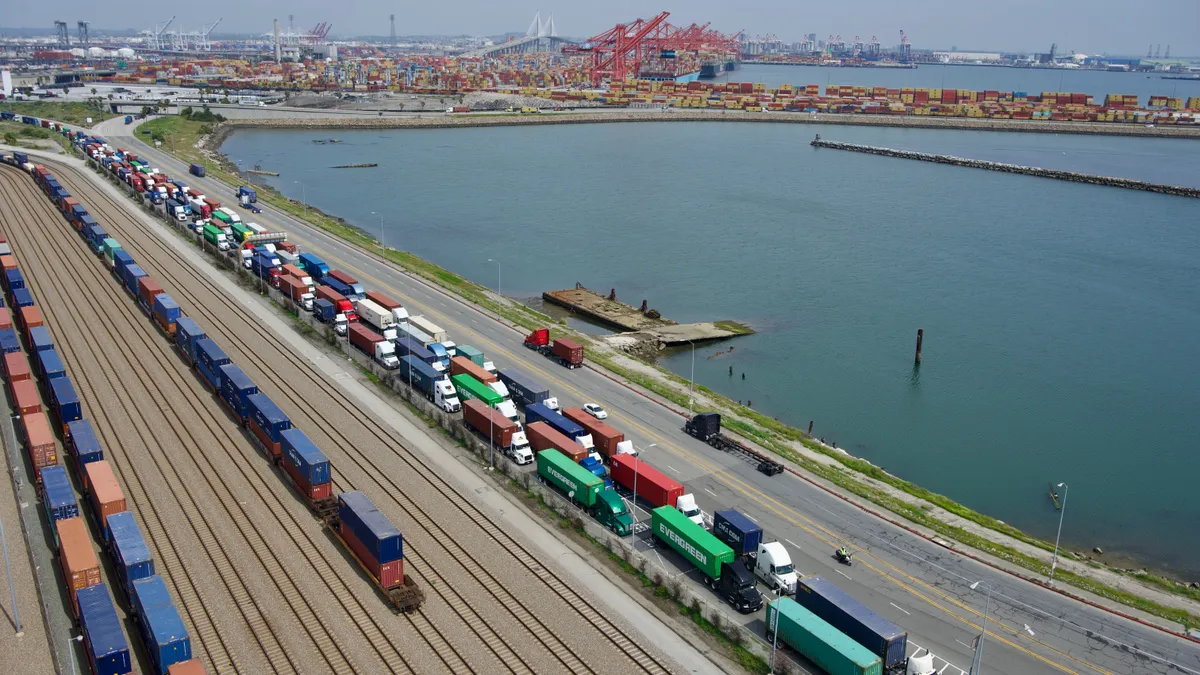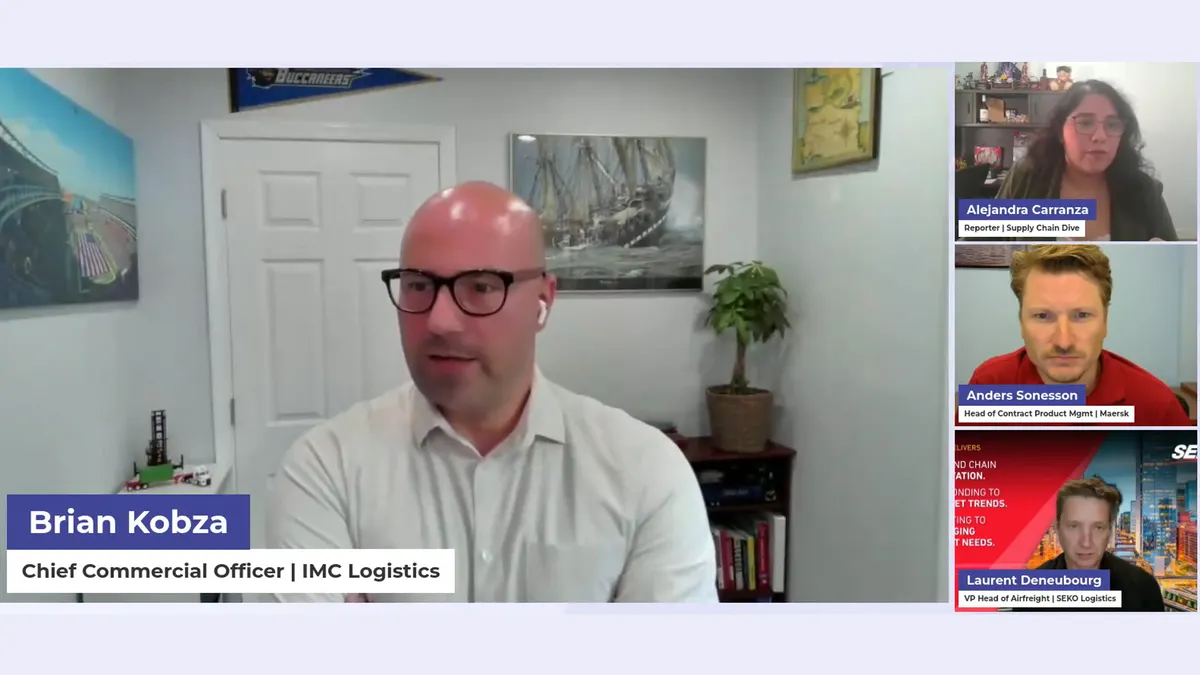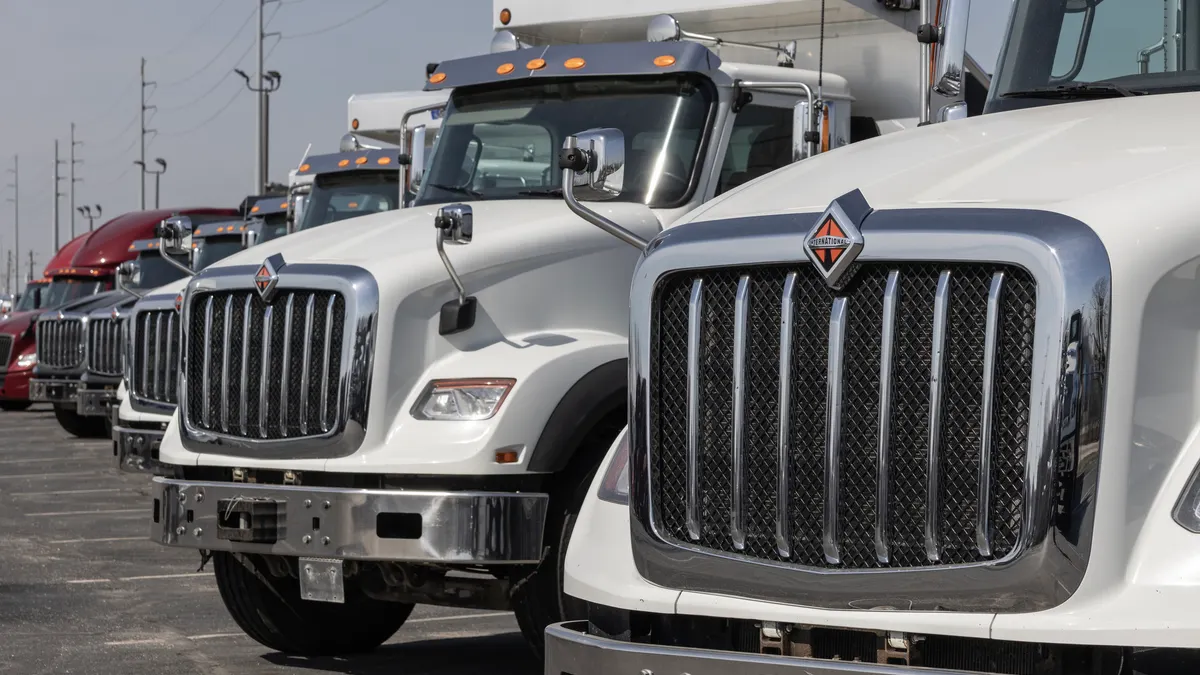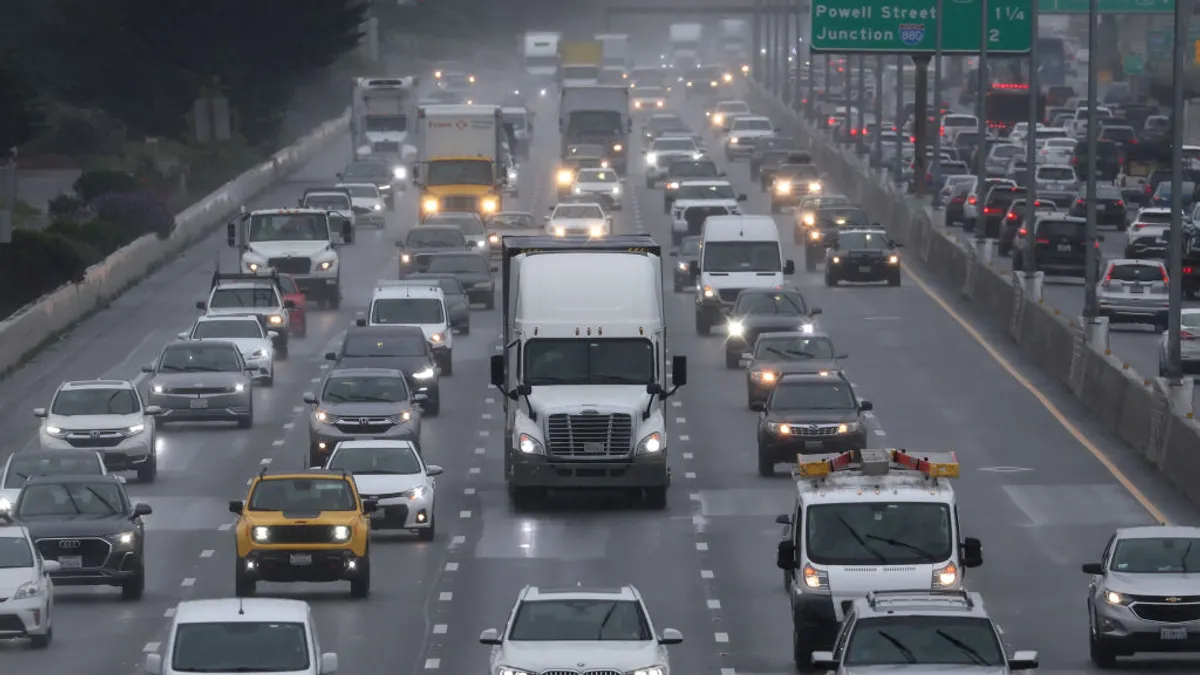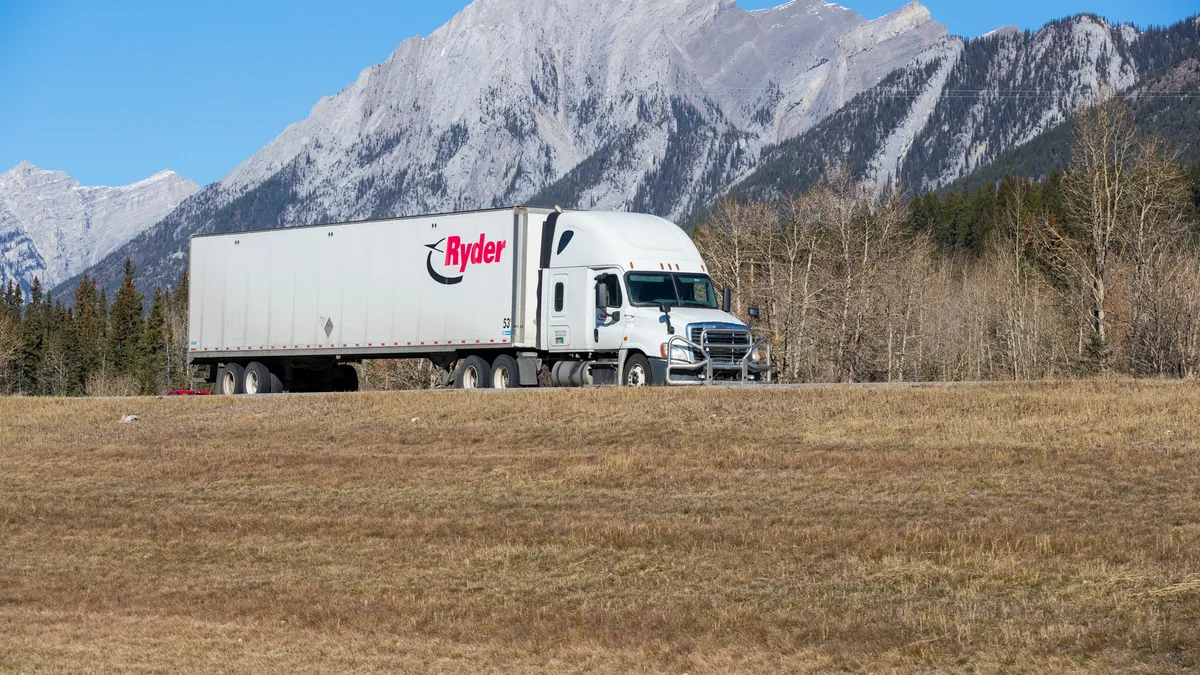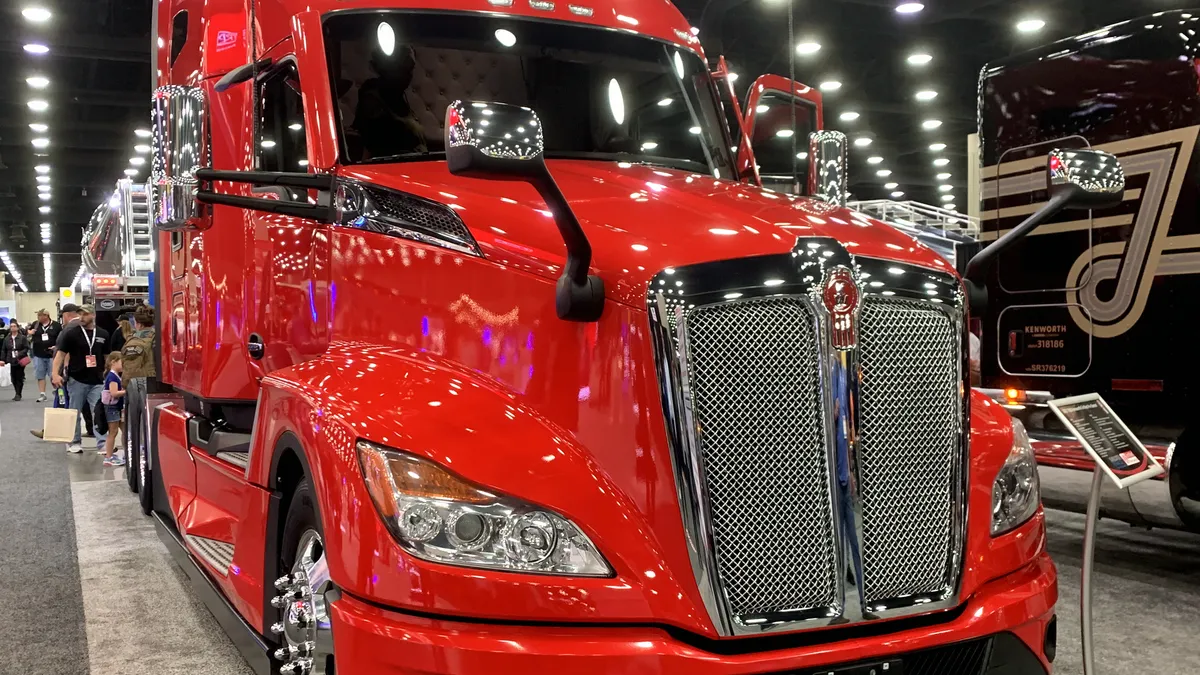The California Air Resources Board said it will delay enforcing certain registration or reporting provisions of its Advanced Clean Fleets regulation, just days ahead of a year-end deadline it had set for trucking companies.
Under the rule, drayage fleets and others deemed high priority had until Dec. 31 to register any combustion-powered truck operating at intermodal seaports or railyards. After that date, registering trucks with internal combustion engines would effectively be banned, as all new vehicles added to fleets would have to qualify under zero-emission truck standards.
But on Dec. 28, the state agency, known as CARB, circulated an advisory saying it would not enforce those provisions until the U.S. Environmental Protection Agency grants a key waiver establishing its authority.
What delayed enforcement means for carriers
Throughout its communications, CARB warned delayed enforcement does not give trucking firms leeway to deploy more combustion-powered vehicles into their fleets after Jan. 1, 2024 — it just makes reporting optional, for the time being.
“Reporting is optional until the waiver is granted or determined to be unnecessary,” CARB said in the notice. “However, fleets will need to report their fleet as it existed on January 1, 2024, as well as any removals or additions to the California fleet since January 1, 2024, once the waiver is granted or is determined to be unnecessary.”
If fleets add an internal combustion engine vehicle into the registry after Jan. 1, operators should expect to receive a message saying the vehicle “may be restricted from performing drayage services” following the EPA's decision, the state said. That means fleets could find that equipment become impermissible.
The Advanced Clean Fleets regulation requires trucking operators to follow one of various timelines for transitioning to zero-emission vehicles, depending on the company’s size, type and area of business. In addition to banning registration of combustion-powered vehicles in 2024, for example, the rule gives CARB the authority to de-register vehicles that have surpassed their “useful life” of 18 years or 800,000 miles in operation.
Enforcement of that provision is also being delayed temporarily while CARB awaits an EPA waiver, according to a Tuesday letter from CARB Executive Officer Steven Cliff to Chris Shimoda, senior vice president of government affairs at the California Trucking Association.
“CARB also will not take enforcement action against vehicles that exceed their useful life periods (as defined in the regulation and including 2007-2009 model-year natural gas drayage trucks)—meaning CARB will not de-register those vehicles—until U.S. EPA grants a preemption waiver applicable to the relevant regulatory provisions or determines a waiver is not necessary,” Cliff said in the letter, which was seen by Trucking Dive.
Given the chance of future enforcement, Cliff encouraged trucking operators to voluntarily comply with the Advanced Clean Fleets regulation provisions, even while CARB awaits a waiver. He also highlighted the state agency is accepting requests for extensions or exemptions while enforcement is delayed.
“We look forward to receiving the waiver and continuing to work with our industry partners on a successful implementation,” a CARB spokesperson added via email.
California Trucking Association leads the way
The news comes after the California Trucking Association had signaled its intent to ask courts to halt enforcement of the drayage and high priority fleet clauses as part of its lawsuit against CARB.
However, the letter from Cliff to Shimoda reveals the agency’s decision to delay enforcement was part of an agreement between the two parties. In exchange for temporary non-enforcement, the trade group agreed to not file a preliminary injunction motion while a waiver request is pending.
“As always, we appreciate the opportunity to discuss issues with regulated parties and other stakeholders. And we are pleased the parties were able to come to an understanding to avoid resource-intensive motion practice in this litigation,” Cliff said in the letter.
Shimoda, for his part, confirmed on LinkedIn the news was part of a deal between the two parties, saying: “Good way to end 2023. Bigger things ahead in 2024!”



